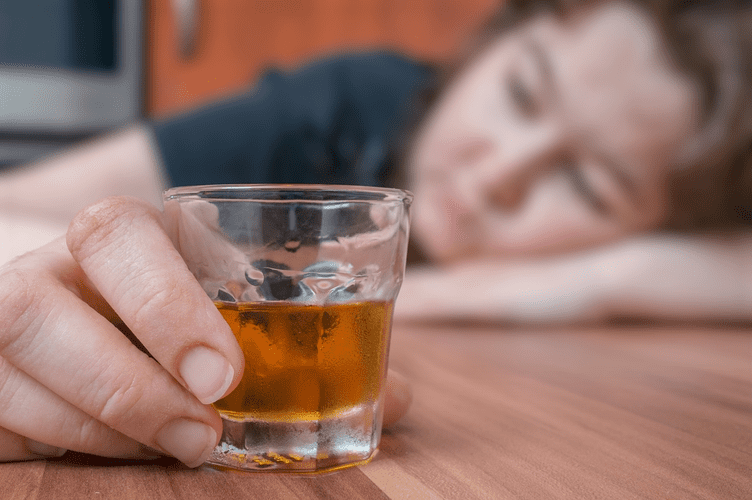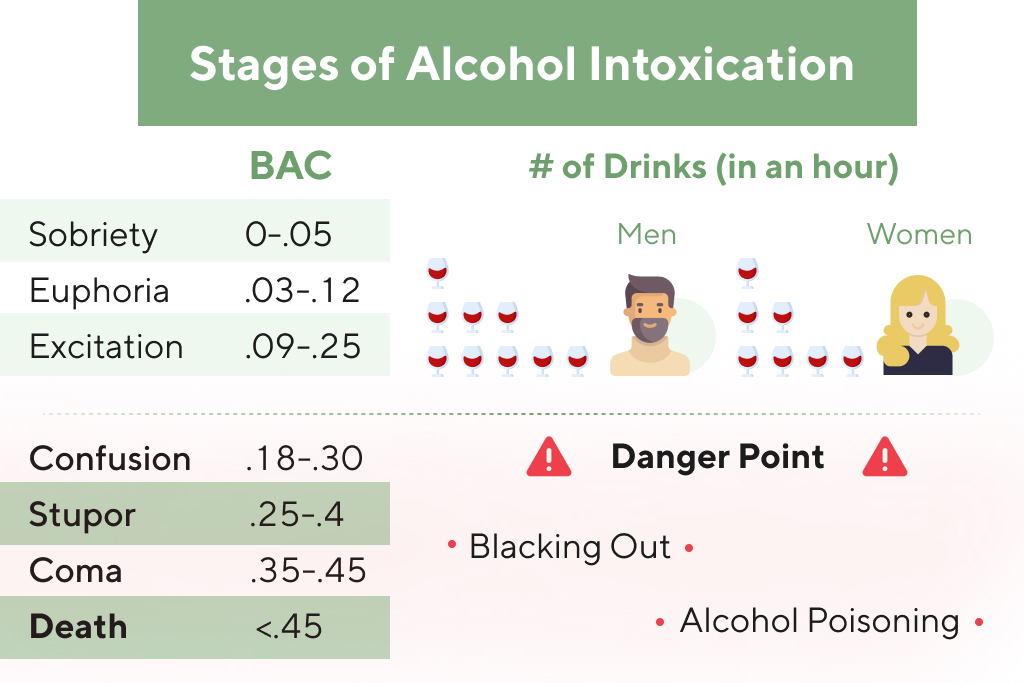According to the Centers for Disease Control and Prevention (CDC), people who abuse alcohol are 10 times more likely to develop pneumococcal pneumonia and 4 times more likely to die from pneumonia than nondrinkers (Lujan et al. 2010). While binge drinking is typically more harmful than occasional drinking, any amount of alcohol can have adverse effects on the body and its ability to fight infections and diseases. Drinking every day or drinking too much alcohol at a time may affect the immune system more than drinking every other day or every few days, but the healthiest thing to do is abstain from drinking completely.
What Does Alcohol Do to Your Body? 9 Ways Alcohol Affects Your Health
- After drinking 8 to 9 units of alcohol, your reaction times will be much slower, your speech will begin to slur and your vision will begin to lose focus.
- Although this chronic weakening of lung function may not cause any immediate symptoms, these effects can manifest when a severe respiratory infection occurs.
- These disruptions to the composition of the gut microbiota and to gut barrier function have important implications beyond the intestinal system.
- When your liver finishes that process, alcohol gets turned into water and carbon dioxide.
- Alcoholic drinks containing antioxidants may cause less damage than other drinks because they help protect against some of the free radicals in ethanol.
- Pneumoniae in vitro and a complete absence of killing of other bacterial strains in alcohol-exposed animals.
When the gut barrier cannot function properly, harmful bacteria can leak into the bloodstream, leading to further complications. By illuminating the key events and mechanisms of alcohol-induced immune activation or suppression, research is yielding deeper insights into alcohol’s highly variable and sometimes paradoxical influences on immune function. The insights summarized in this issue of ARCR present researchers and clinicians with opportunities to devise new interventions or refine existing ones to target the immune system and better manage alcohol-related diseases. That’s because, over time, high http://gigafan.ru/flash_games/fun/6675-Sober_Santa.html levels of stress can kill off the white blood cells that help to rid your body of infection (lymphocytes).
Manage your chronic conditions
It is clear, however, that prolonged alcohol consumption http://cheapuggsforsale2014.com/the-advantages-of-shopping-for-from-an-online-health-and-magnificence-store.html alters the pathophysiology and key factors involved in neutrophil-driven lung immunity in response to S. The following paragraphs outline the data supporting these deleterious effects of heavy alcohol consumption on neutrophil function in the context of S. In addition to neutrophil recruitment to infected areas and reduced neutrophil-killing potential, production of these cells also is affected. In healthy individuals, the bone marrow produces approximately 120 billion neutrophils per day (Cartwright et al. 1964; von Vietinghoff and Ley 2008). Moreover, bone-marrow neutrophil production is significantly increased 24 to 48 hours after a systemic bacterial infection (Melvan et al. 2011).
- You can lower the risk of alcohol impacting your immune system by drinking less.
- To this end, one study analyzed IL-10, IL-6, IL-18, and tumor necrosis factor α (TNF-α) levels in 25 non-treating seeking heavy drinkers after they had consumed an alcoholic drink.
- For example, oral GSH treatment in alcohol-drinking mice was able to restore GSH pools, reverse alcohol-induced Nox increases, and restore alveolar macrophage function (Yeligar et al. 2012, 2014).
- While you may think the trouble with smoking is the increased risk of lung cancer (which is absolutely true), smoking also affects your whole body and weakens your immune system.
- Long-term alcohol misuse can weaken your immune system, making you more vulnerable to serious infections.
- The levels of GM-CSF are reduced in chronic alcohol-drinking mice (Joshi et al. 2005).
Alcohol consumption and infection

Prolonged alcohol exposure alters the first line of the innate cellular defense, the mucociliary apparatus, against invading pathogens such as RSV. This defense system propels inhaled particles, microbes, toxins, and debris out of the lungs and airways with the help of the fine hairs (i.e., cilia) on the cells that line the respiratory tract. The alcohol-induced dysregulation of lung neutrophil recruitment and clearance is only part of the problem in people with AUD, because alcohol also has harmful effects on other aspects of neutrophil functioning. However, alcohol’s effects on neutrophil phagocytosis and pathogen killing are less clear than the effects on neutrophil recruitment, and the findings to date are inconclusive. For example, Davis and colleagues (1991) found that alcohol-fed rats failed to clear bacteria from the lungs and had increased mortality.
Similar articles
In the case of pneumonia, neutrophil recruitment to the lung is a critical https://virtu-virus.ru/bolnye/ptsd-alcohol-problems-co-okkur-v.html early step in the host’s immune response. In the early stages of infection, circulating neutrophils are recruited to sites of inflammation by a gradient of inflammatory mediators, including proinflammatory cytokines and chemokines. Neutrophils traverse the cells lining the blood vessels (i.e., vasculature endothelial cells) into the space between the lung cells (i.e., the interstitial space of the lung). From there, they migrate into the airspace within the alveoli to the sites of microbial invasion. Once in the alveolar space, neutrophils ingest, degrade, and remove invading pathogens (Nathan 2006). This neutrophil-recruitment process is impaired by alcohol; even brief alcohol exposure decreases neutrophil recruitment to infected sites (Astry et al. 1983).

The respiratory tract contains cilia, which are microscopic projections that move the mucus toward the throat. This movement prevents bacteria, particles, and fluid from entering the lungs. Alcohol impedes ciliary function in the respiratory system’s upper airways, allowing mucus to enter the lungs, which can lead to pneumonia. Alcohol also impairs immune cell function and weakens epithelial barrier function in the lower airways, which can cause bacterial respiratory infections. In a clinical case study reviewed in this issue, Trevejo-Nunez and colleagues report on systemic and organ-specific immune pathologies often seen in chronic drinkers.
Practice healthy hygiene habits
Over the past two decades, studies demonstrated that brief exposure to modest alcohol concentrations triggers generation of nitric oxide (NO) in the airway epithelial cells. This NO production stimulates a signaling pathway that involves the enzyme guanylyl cyclase, which produces a compound called cyclic guanosine monophosphate (cGMP). CGMP, in turn, activates cGMP-dependent protein kinase (PKG), followed by activation of the cyclic adenosine monophosphate (cAMP)-dependent protein kinase A (PKA). Activation of this dual kinase signaling pathway results in faster cilia beat frequency (CBF) in cilia briefly exposed to a moderate alcohol dose compared with controls (Sisson 1995; Sisson et al. 2009; Stout et al. 2007; Wyatt et al. 2003).

Brain
One of the most significant immediate effects of alcohol is that it affects the structure and integrity of the GI tract. For example, alcohol alters the numbers and relative abundances of microbes in the gut microbiome (see the article by Engen and colleagues), an extensive community of microorganisms in the intestine that aid in normal gut function. Alcohol disrupts communication between these organisms and the intestinal immune system. Alcohol consumption also damages epithelial cells, T cells, and neutrophils in the GI system, disrupting gut barrier function and facilitating leakage of microbes into the circulation (see the article by Hammer and colleagues).

Recent Comments